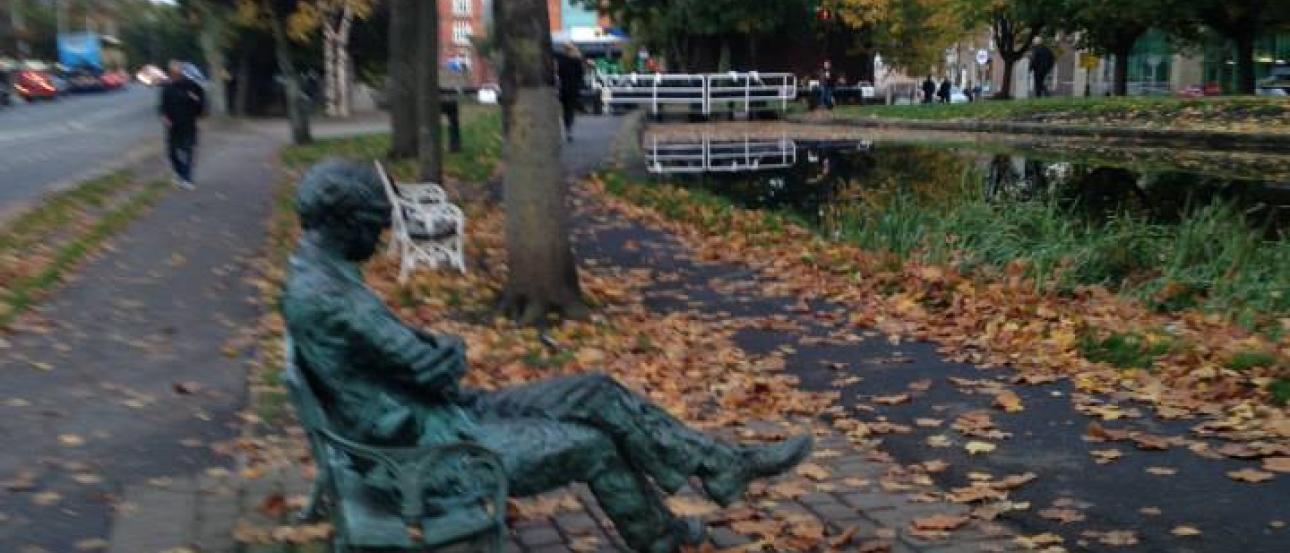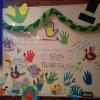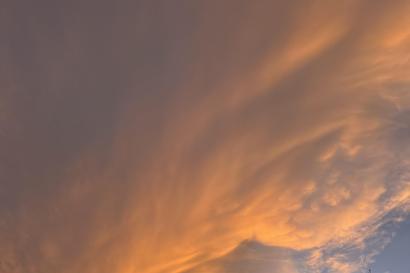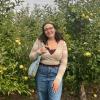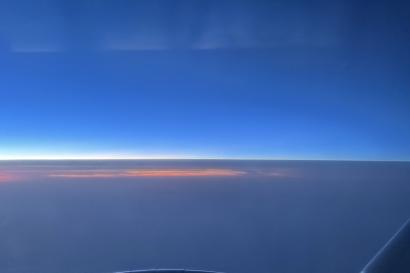I found the statue soon after I discovered the jogging path along the Grand Canal. For a long time, I didn’t know its name, didn’t know the name of the figure that sat on the park bench near the water’s edge, day in, day out, no matter how stormy the weather. Really, there was no excuse for my extended period of ignorance; there is an identifying placard situated quite close to where he is position, life-size and with a pensive enough face to be truly human, if it didn’t happen to be gray and made of stone.
In fact, the statue is Patrick Kavanagh, and he was an Irish poet, born in 1904 in County Monaghan to a family of farmers. He is, then, of rural origins, a man born of the great green of the Irish countryside, though he sits now in the center of the capital city, just pass the site of the myriad white tents of the weekly food fair, by the road that rushes with traffic, buses and cars and bikers who rarely stop to give him a glance, too focused on their destination, on where they need to be. Even I seldom stopped, on my runs, too focused on getting back in time, either for class or an event or simply my coursework. As I’ve said, I passed by many times before I even read the placard that find introduced us.
But if we were, for the first part of my time in Dublin, only the most passing of acquaintances, we did become closer. And if Kavanagh sits amidst a city that, albeit on a smaller scale than New York, never really sleeps (I can personally attest that even at three a.m., you can still find people in various states of wakefulness milling around, headed home or trying to catch an overnight bus), the poet seems utterly unperturbed by this hurry and harry and busyness. I guess the fact that he’s made of rock helps. Nonetheless, there’s something I came to find very compelling and even calming about the way he leans back on the bench, arms folded, legs crossed, glasses on, looking how imagine thinkers do, their bodies acting rather like barricades against the incursions of the “real” world even as they steep themselves in their surroundings, in what they see.
There is, after all, a paradoxical solitude to being a poet, an artist, to being mired forever in the contemplation of a human-run world but also, in some sense, set apart from it. You can’t ever tell a story, after all, without putting yourself in a position that is somewhat liminal, somewhat “inside,” to be sure, but also forever “outside,” the observer of other people, the translator of actions to some concrete form, be it words or paint or lines or squiggles.
Patrick Kavanagh was not unaware of this connection between solitude and poetry, between the art of observation and the actuality of loneliness. Indeed, in the last month, our friendship, so long in starting, has blossomed. I’ve now read some of the words through which he saw to bridge the gaping distance between himself and everyone and everything else.
One poem, called “Inniskillen Road: July Evening” and set in the place where Kavanagh grew up, goes like this:
The bicyles go by in twos and threes -
There's a dance in Billy Brennan's barn tonight,
And there's the half-talk code of mysteries
And the wink-and-elbow language of delight.
Half-past eight and there is not a spot
Upon a mile of road, no shadow thrown
That might turn out a man or woman, not
A footfall tapping secrecies of stone.
I have what every poet hates in spite
Of all the solemn talk of contemplation.
Oh, Alexander Selkirk knew the plight
Of being king and government and nation.
A road, a mile of kingdom. I am king
Of banks and stones and every blooming thing.
What is the contemplation of a poet? Is it a terrible duty, an act of self-sacrifice that some are compelled to make for the good of humanity? Does the true poet abhor the solitude that comes with the trade, or does he or she revel in it? Is the true poet monarch or victim?
I’ve thought a lot about writing, over this past semester – what it entails, whether it is something I’m suited for. What is writing for, in the end – but perhaps the better question would be, Who is it for? Is it personal or public, selfish or selfless, or somewhere in between? When I write, am I writing to reach someone or simply to express myself, no matter if I am a tree falling in a forest that makes no sound? Am I writing to proclaim myself the head of a government, or simply to feel the power that comes with words, even if it goes unrecognized?
I don’t know the exact answers to these qeutsions, and I don’t know if Kavanagh did, either, only that he seems very happy where he is, perched on a bench by the side of the canal, watching the bikes go by in twos or three or tens, watching the cars and buses and taxis on the other side of the water. He seems so utterly content in his solitude that I’ve even seen the occasional passerby, sometimes with a lunch in hand, stop at his bench and take a seat beside him, perhaps impelled by the inexplicable sense of continuity and community that has always ultimately been felt between people no matter the spaces and sentences that separate us, the inexplicable sense that it is okay to be alone sometimes, because it is the only way we can possibly know how to be together.
**My discussion of Kavanagh was influenced by my short story instructor, Mr. Stephen McMahon, who introduced me to Kavanagh’s work, including the poem above. The text I have reproduced here is from the Trinity College Dublin website on this poet, found at https://www.tcd.ie/English/patrickkavanagh/inniskeenroad.html.
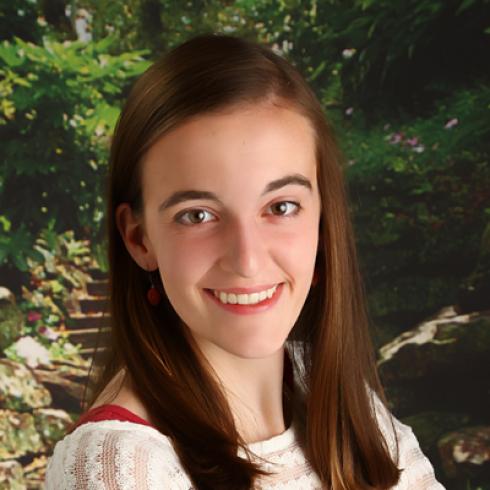
Chelsea Thomeer
I'm a rising junior at Williams College majoring in English and political science. I love reading and running, Jane Austen and J.K. Rowling, pumpkin bread and pretzels, The Grapes of Wrath and green tea. I'm spending a semester in Ireland to study Irish literature and to work on my own writing.
